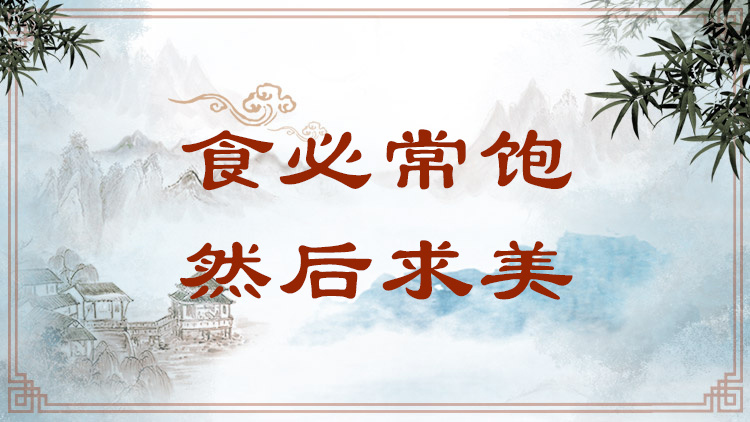Attention to Refined Taste Comes Only After the Stomach Is Sated

食物一定是先正常吃饱,然后再讲求口味。墨子主张节约和实用,反对文饰,认为过多的文饰既浪费劳动力,又浪费原材料。他提出先解决温饱,再满足审美。墨子并不是排斥美,也不是不会欣赏美,只不过他以实用性、功利性作为衡量美的标准,认为凡是不实用的、只讲究形式华丽的都不是真正的美。儒家强调文质彬彬,将形式美与内容实质同等看待;而墨子则强调先质而后文。
Humans must first of all eat to live. Taste is secondary. Mozi opposed extravagance in favor of frugality and utility. He argued that an extravagant way of life was wasteful of labor and raw materials. He prioritized eating one's fill and dressing warmly over aesthetic demands. It was not that he abhorred beauty or was unable to appreciate it. Rather, he adopted functionality and usefulness as his criteria for judging beauty, and believed that whatever was impractical or of only formal elegance had no true beauty. Whereas Confucian philosophers valued both form and content, arguing that external features and inner substance were equally important, Mozi placed substance well above form.
引例 Citation:
◎故食必常饱,然后求美;衣必常暖,然后求丽;居必常安,然后求乐。(刘向《说苑》引《墨子》)
所以食物一定是先能正常吃饱,然后再讲求口味;衣服一定是先能正常穿得暖和,然后再讲求漂亮;居所一定是先能正常住着安稳,然后再讲求享乐。
Hence, a person must be able to eat his fill before he can shift his focus to taste. He must dress warmly before he can consider elegance. He must also have a secure dwelling before he thinks about enjoying comfort. (Mozi, as cited in Liu Xiang: Garden of Stories)
推荐:教育部 国家语委
供稿:北京外国语大学 外语教学与研究出版社
责任编辑:钱耐安





